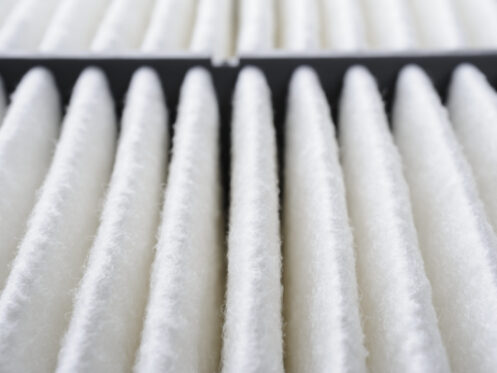Improving indoor air quality can have significant benefits for your health and overall well-being. Here are some easy ways to improve indoor air quality.
1. Increase Ventilation
Increased ventilation can improve indoor air quality in several ways. When you open windows or doors or use mechanical ventilation systems such as exhaust fans, it allows fresh outdoor air to circulate into your indoor space, diluting the concentration of indoor air pollutants. This can be especially important if you live in a tightly sealed building or if there are sources of indoor air pollution, such as smoking or cooking with gas stoves.
Additionally, increased ventilation can help to reduce excess moisture, which can contribute to the growth of mold and mildew. Ventilation can also improve indoor air quality by removing stale and stagnant air that can harbor pollutants. Proper ventilation can also help to regulate temperature and humidity levels, which can further improve indoor air quality and create a more comfortable living environment.
2. Use Natural Air Purifiers
Plants can improve indoor air quality by removing certain pollutants and chemicals from the air through a process called phytoremediation. Through their leaves and roots, plants absorb pollutants such as volatile organic compounds (VOCs), benzene, and formaldehyde, which are commonly found in household items like cleaning products, furniture, and carpets.
Plants also release moisture into the air through a process called transpiration, which can increase humidity levels and help to reduce airborne pollutants. Studies have shown that having plants in indoor spaces can lead to improvements in air quality and can help to reduce symptoms of sick building syndrome, such as headaches and respiratory problems. However, it is important to note that while plants can be beneficial for improving indoor air quality, they should not be relied upon as the sole method of air purification; other methods, such as proper ventilation and air filtration, should also be considered.
3. Keep Floors Clean
Vacuum carpets regularly and mop hard floors to reduce dust and allergens. Keeping floors clean can help to improve indoor air quality by reducing the amount of dust, dirt, and allergens in the air. Dust and dirt can accumulate on floors and other surfaces, and when disturbed, they can become airborne and contribute to poor indoor air quality.
In addition, regularly cleaning floors can also help to reduce the presence of common indoor allergens such as pet dander, pollen, and dust mites, which can trigger allergy symptoms and respiratory problems. It is important to use a vacuum cleaner with a HEPA filter, which can capture small particles and prevent them from being recirculated back into the air. Additionally, it is important to use cleaning products that are safe and non-toxic, as some cleaning products can release harmful volatile organic compounds (VOCs) into the air, contributing to poor indoor air quality.
4. Control Humidity
Controlling humidity can help to improve indoor air quality by reducing the growth of mold and mildew, which can thrive in environments with high humidity levels. Mold and mildew can release spores into the air, worsening respiratory problems such as asthma and allergies.
It is also important to note that maintaining proper humidity levels can help to prevent the drying out of mucous membranes, which can lead to respiratory problems. Ideally, indoor humidity levels should be kept between 30% and 50% to promote healthy indoor air quality.
5. Keep Your HVAC System Maintained
Keeping your heating, ventilation, and air conditioning (HVAC) system properly maintained can help to improve indoor air quality by reducing the buildup of dust, dirt, and other particles that can circulate through the air. Over time, dust, pollen, and other particles can accumulate in your HVAC system, reducing its efficiency and increasing the likelihood of poor indoor air quality.
Regular maintenance of your HVAC system can include tasks such as changing air filters, cleaning air ducts, and checking for leaks or blockages. By keeping your HVAC system in good working order, you can help to ensure that it is effectively filtering and circulating clean air throughout your indoor space.
It is also important to schedule regular professional inspections of your HVAC system to ensure that it is working efficiently and effectively. A professional inspection can identify potential problems early on and help to prevent costly repairs or replacements down the line.
By implementing these easy steps, you can significantly improve the quality of the air inside your home. At Queen City Heating & Cooling, we can help you with all your HVAC needs in Springfield, MO and the surrounding communities. We offer HVAC maintenance, repair, and installation, as well as a range of indoor air quality solutions, including ventilation systems, air filtration systems, and humidifiers and dehumidifiers. Call us today to schedule a consultation!





